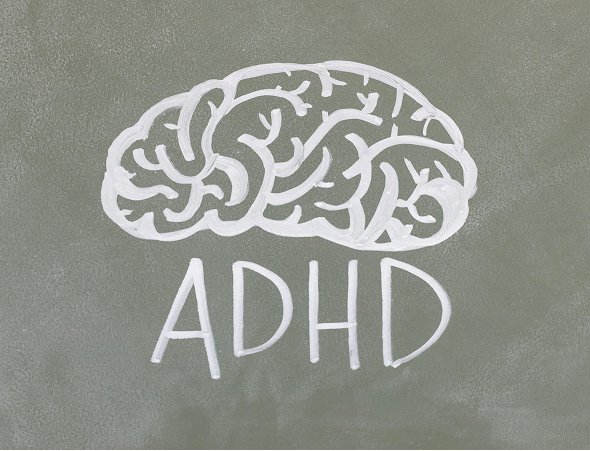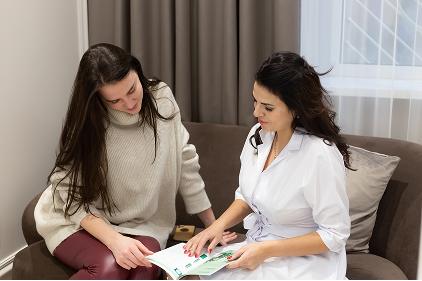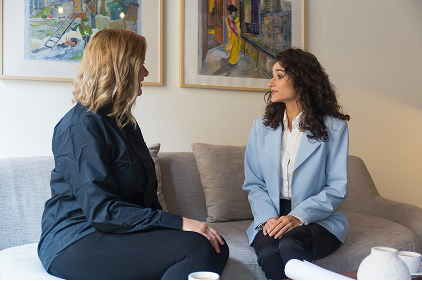Accreditations
Understanding ADHD Coaching in the UK
At AuDHD Psychiatry,
ADHD coaching is a practical, forward-focused support service designed to help individuals manage the day-to-day effects of Attention Deficit Hyperactivity Disorder (ADHD).
While therapy often explores the past, it enables you to take action in the present.
For adults in the UK, ADHD life and executive coaching provides structured strategies for planning, organisation, self-motivation, and focus.
For students, professionals, or individuals seeking better routines, coaching offers personalised support tailored to your lifestyle.
Unlike clinical interventions, coaching is non-diagnostic and goal-oriented. Sessions focus on building accountability, managing time more effectively, and creating realistic action plans that align with your strengths.
This form of support can be especially valuable for adults with ADHD who need help turning awareness into action.
At AuDHD Psychiatry, our ADHD coaches UK are available for online consultation so that you can find support from the comfort of your own home and schedule.
Who Is ADHD Coaching For?
Our ADHD coaching for adults offers structured, personalised guidance for those experiencing focus issues, executive functioning difficulties, and daily overwhelm.
If you’re newly diagnosed, facing work and relationship challenges, or simply seeking better time management of ADHD symptoms, an ADHD coach for adults can help.
Adult ADHD coaching empowers individuals with tools that promote self-awareness, accountability, and meaningful progress.
Introduction to Private Autism Assessments
An ADHD coach for adults helps bridge the gap between intention and action.
Here’s what to expect from an experienced ADHD life coach or ASD coach in the UK:
Coaches offer external structure and regular check-ins to keep you on track with planning, routines, and long-term goals. This accountability is key in ADHD coaching for adults.
From time management to task initiation, ADHD coaches provide tailored techniques to support focus and daily performance.
Learn ADHD-friendly skills to manage procrastination, stay organised, and improve self-awareness around your habits.
Unlike therapy, ADHD coaching is goal-based and action-driven. It’s about building strategies that move you forward.
Working with our ADHD Coach or ADHD specialist guarantees you’ll have someone who understands the unique ways neurodivergence impacts your life.
Support from a certified ADHD coach can make all the difference in building confidence and momentum.
Adult ADHD Assessment: Clarity and Confidence Through Proper Diagnosis
Living with undiagnosed ADHD as an adult can be overwhelming. You may have spent years feeling disorganised, forgetful, or unable to focus—perhaps even attributing these difficulties to personality flaws or stress. But ADHD isn’t just a childhood condition, and when left unrecognised, it can significantly impact relationships, work performance, and emotional wellbeing. A professional ADHD assessment for adults provides clarity, offering an explanation for lifelong struggles and helping you move forward with confidence. At our clinic, we take the time to understand your individual experience, exploring your history, symptoms, and current challenges with care and attention. Through our comprehensive process, we aim to provide more than just a diagnosis—we offer understanding, validation, and a clear path to support.
Our adult ADHD assessment process is thorough yet compassionate. We begin with an in-depth clinical interview, where you can talk openly about your experiences, followed by standardised screening tools and questionnaires tailored for adults. If appropriate, we may also include input from a family member or partner to provide additional context. Our team of experienced clinicians uses the latest evidence-based tools to ensure the diagnosis is accurate, ruling out other conditions that can present similar symptoms. Whether you’re seeking support for your academic life, your career, or personal relationships, our goal is to equip you with insights and tools that help you thrive—not just cope.

Our adult ADHD assessment process is thorough yet compassionate. We begin with an in-depth clinical interview, where you can talk openly about your experiences, followed by standardised screening tools and questionnaires tailored for adults. If appropriate, we may also include input from a family member or partner to provide additional context. Our team of experienced clinicians uses the latest evidence-based tools to ensure the diagnosis is accurate, ruling out other conditions that can present similar symptoms. Whether you’re seeking support for your academic life, your career, or personal relationships, our goal is to equip you with insights and tools that help you thrive—not just cope.
Common Signs of ADHD in Adults:
Common Assessment Tools
Several tools are utilized during the assessment process:
Adult ADHD Self-Report Scale (ASRS)
A questionnaire that helps identify symptoms and their impact on daily life.
Wender Utah Rating Scale (WURS)
Assesses childhood symptoms of ADHD to establish a historical pattern.
Diagnostic Interview for ADHD in Adults (DIVA-5)
A structured interview that explores current and past symptoms, providing a comprehensive overview.
Real-World Challenges and Adaptations with ADHD
Living with ADHD presents unique challenges in various aspects of life.
Workplace Difficulties
Adults with ADHD may struggle with time management, meeting deadlines, and maintaining focus during meetings.
Relationship Struggles
Impulsivity and inattentiveness can strain personal relationships, leading to misunderstandings and conflicts.
Daily Life Management
Tasks like paying bills, keeping appointments, and maintaining household responsibilities can become overwhelming.
Understanding these challenges is the first step toward developing effective coping strategies and seeking appropriate support.


Treatment Options
Once diagnosed, several treatment avenues can be explored:
Medication
Stimulant and non-stimulant medications can help manage symptoms by improving focus and reducing impulsivity.
Therapy
Cognitive Behavioral Therapy (CBT) is effective in addressing negative thought patterns and developing coping mechanisms.
Lifestyle Modifications
Incorporating regular exercise, structured routines, and mindfulness practices can significantly improve daily functioning.
Read more…
ADHD Coaching vs Therapy and Counselling
Understanding the Differences
ADHD coaching and therapy both play essential roles in supporting individuals with ADHD, but they serve different purposes.
While an ADHD coach and therapist may both help with self-awareness and goal setting, coaching is future-focused and action-driven. In contrast, therapy and ADHD counselling often focus on past experiences, emotional regulation, and managing mental health conditions like anxiety or depression.
When to Consider ADHD Coaching
Coaching is best suited for individuals who feel stuck in routines, struggle with time management, or have difficulty following through on plans.
It’s particularly helpful for adults who want practical strategies to improve productivity, structure, and focus. Coaching sessions offer targeted support with planning, routines, and task execution, especially in work performance or academic settings.
When ADHD Therapy May Be More Appropriate
ADHD counselling or psychotherapy may be more appropriate if you’re experiencing emotional distress, trauma, or co-occurring conditions such as mood disorders. Therapists are trained to explore deeper psychological patterns, providing emotional support and long-term mental health care.
Can You Combine Coaching with Therapy?
In many cases, coaching and therapy complement each other.
Coaching provides structure and behavioural strategies, while counselling supports emotional well-being. Individuals often benefit most from a combined approach, where both the mind and behaviour are addressed in parallel.

Ready to get clarity on whether ADHD is behind your challenges?
Coaching for ADHD: Models and Approaches
Coaching for ADHD: Models and Approaches
ADHD coaching is not one-size-fits-all. There are several evidence-based approaches designed to support individuals based on their goals, environment, and symptom profile.
ADHD Executive Coaching
This model focuses on workplace performance, academic productivity, and goal achievement. Executive coaching for ADHD targets core areas like time management, prioritisation, organisation, and communication.
It’s ideal for professionals, students, or entrepreneurs who want to optimise focus and output without burnout.
ADHD Life Coaching
A more holistic model, ADHD life coaching supports personal growth, routines, relationships, and daily structure.
Life coaches provide strategies for managing procrastination, self-esteem, and emotional regulation. If you’re adjusting to a new diagnosis or experiencing long-standing challenges, a qualified ADHD life coach can offer personalised support.
Coaching Goals and Success Indicators
ADHD coaching is more than having a chat. It’s building momentum and achieving measurable results. Every individual has different priorities, and here are some of the goals we aim for.
Clarity and Direction
Coaching offers a structured environment to break free from the fog of ADHD freeze and map out next steps confidently.
Better Task Completion
Learn how to start (and finish) tasks without feeling overwhelmed – one small win at a time.
Reduced Overwhelm
With the right tools and accountability, you can shift from feeling overwhelmed to feeling capable and in control.
Visible Coaching Benefits
Improvements in planning, emotional regulation, and daily consistency – not just internally, but in real-life performance.
Validation and Progress Tracking
Each session includes regular check-ins to monitor your progress and refine strategies, whether you’re focusing on impulse control, managing stress, or building new habits that support long-term behavioural change.
Depending on your needs, we’re always happy to go beyond this list to ensure you receive the most effective and personalised support.

80% Undiagnosed
Many adults don’t realise they have ADHD














